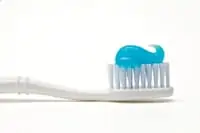 While you have likely been told time and time again that it is extremely important to brush your teeth regularly, discussions about the type of toothpaste you should be using may be less frequent. However, toothpastes contain different ingredients that can provide varied benefits to your mouth.
While you have likely been told time and time again that it is extremely important to brush your teeth regularly, discussions about the type of toothpaste you should be using may be less frequent. However, toothpastes contain different ingredients that can provide varied benefits to your mouth.
Toothpastes that are especially designed for tartar control will contain abrasive agents that help to remove deposits from the teeth, and using this type of toothpaste can help to keep your family’s teeth healthy and free of certain dental conditions.
How Can Tartar Control Toothpaste Benefit Your Oral Health?
The top gum disease contributor is plaque, which builds up along the gum line and teeth. Left untreated, plaque can cause inflammation and irritation to the gums, and it can harden to form tartar if not removed.
Once this tartar has hardened onto the teeth, you won’t be able to remove it on your own, and it will increase your risk of developing decay and gum disease. Tartar control toothpaste will help to remove as much of this plaque as possible so that new tartar deposits don’t form.
How Can You Use Tartar Control Toothpaste?
Once you have purchased a tartar control variety of toothpaste in the hopes to keep your teeth clean and healthy, you’ll need to use it wisely.
Make sure you are brushing your teeth after meals or at least twice per day. Hold your brush at a 45-degree angle, ensuring that you are brushing along the gum line with gentle and short strokes. Don’t neglect your tongue, as bacteria love to hang out here, as well.
If you think that you may need to try a different type of toothpaste in order to properly care for your teeth, contact our dental office. He or she will examine your teeth to suggest the type and brand that will work for your unique teeth.


